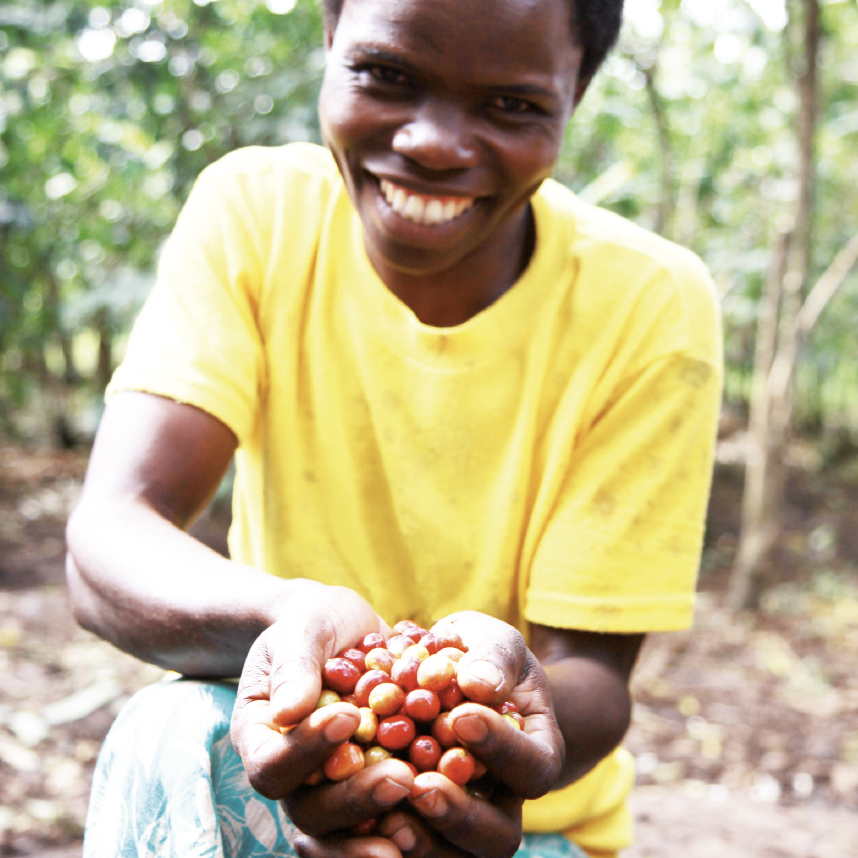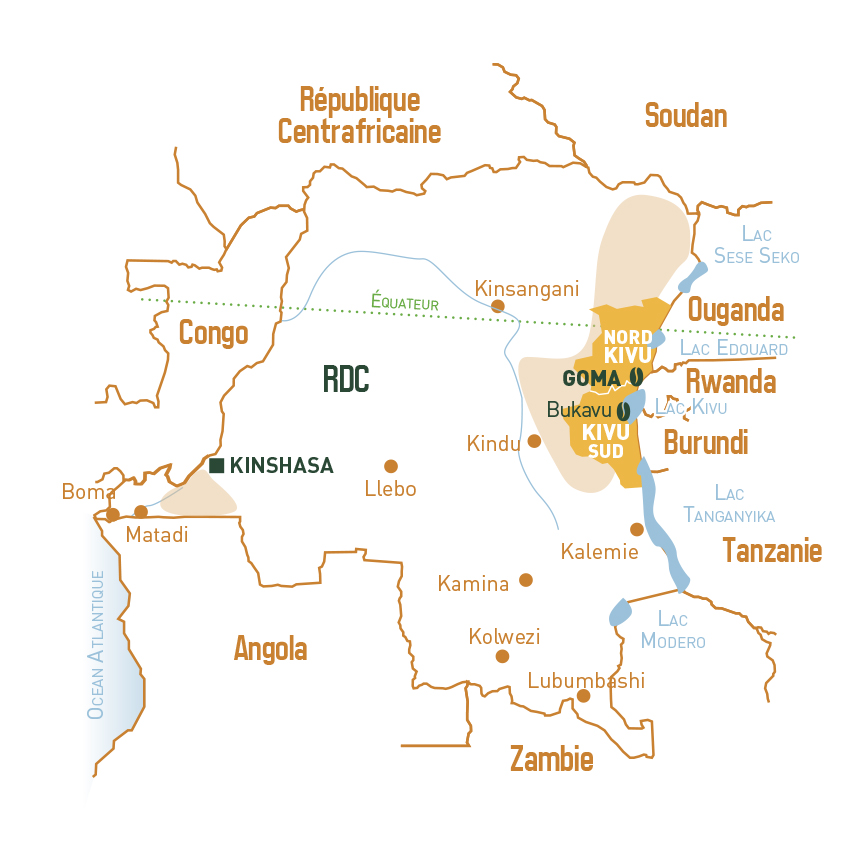
Dem. Rep. of Congo
Type: Arabica
Processing: Fully Washed
Classification: G2
Region: Goma
Notes: The altitude and humid tropical climate, combined with the richness of the volcanic soil, give the beans a powerful body, with lively and subtle aromas. You will also enjoy fruity and citrus notes.
Background
There are approximately 11 000 coffee growers in the countries that produce the two main varieties of coffee, Robusta and Arabica. Production growth began in 1928.
In 1989, Arabica exports reached 20 000 tonnes. But usable land and production fell sharply from 1990 onwards due to the unrest which affected Kivu.
Official exports fell to less than 4 000 tonnes in 2003 before bouncing back recently (7 000 tonnes in 2008) thanks to improved security conditions in producing regions.
Geography
On the border between Congo and Rwanda, the highlands next to Lake Kivu are perfect for growing high quality coffee.
The South Kivu region has the ideal characteristics for growing high quality Arabica coffee. These characteristics include the composition of its soils, a hot and humid tropical climate, with an average annual temperature of 15 to 20°C and an annual average rainfall of 1 300 to 1 800 mm. The region is mountainous, ranging from 1 450 to 2 000 meters in altitude.

Crop information
Species:
• Robusta: 83%
• Arabica: 17%
Origin:
• Liberia: late 19th century: these were not suitable
• Arabica: late 19th century: from Central America
• Robusta: late 20th century: from Indonesia and Sri Lanka
Altitude: Arabica: 1 450 – 2 000 m
Average annual temperature: 15 to 20°
Average rainfall: 1 300 to 1 800 m
Producing regions:
• Robusta: North, Central Basin
• Arabica: East
Harvest:
• Robusta: North and Central: December / January. South: May / July
• Arabica: North: November / January. South: May / September
Drying:
• Arabica: in the sun on a drying rack, mechanical finishing
• Export period: November / February
Economy
Although more than 65% of the Congolese population lives in the countryside and subsists exclusively on family farming, national agricultural policy and the main international donors do not consider this situation an engine of sustainable development. The institutional and political recognition of sustainability remains insufficient.
Family farming either benefits little or not at all from public and private investment which would allow farmers to develop added value.
Based on this assessment, several Belgian organisations, in consultation with their local partners, have set up non-profit organisations. In the DRC, their goal is to accompany and support peasant organisations in their political campaigns and their structuring processes (Comequi).